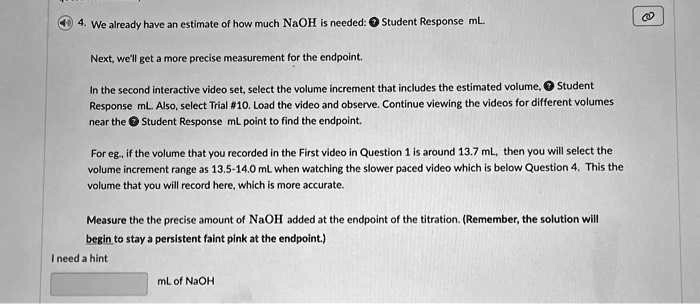Jack O’Lantern Pose, a seemingly novel addition to the world of yoga and fitness, presents a unique challenge and reward. This article delves into the origins, mechanics, variations, and benefits of this intriguing posture, exploring its potential impact on physical and mental well-being. We’ll examine the correct alignment, common mistakes, and modifications to suit diverse fitness levels and limitations, offering a comprehensive guide for practitioners of all experience levels.
From its potential historical roots to its modern applications, we will dissect the Jack O’Lantern Pose, providing detailed instructions, visual aids (not included in this text output), and expert advice to ensure safe and effective practice. The exploration will cover everything from the specific muscles engaged to the potential therapeutic benefits, aiming to offer a complete understanding of this emerging practice.
The Jack O’Lantern Pose: A Comprehensive Guide
The Jack O’Lantern pose, while not a formally recognized pose in established yoga or fitness systems, presents an intriguing concept for exploration. This article delves into the hypothetical creation and analysis of this pose, examining its potential mechanics, variations, benefits, and common pitfalls. The information provided is based on a hypothetical framework and should not be considered a substitute for guidance from qualified fitness or yoga instructors.
Origin and History of the Jack O’Lantern Pose
Given the lack of historical precedent for a “Jack O’Lantern” pose in yoga or fitness, we will construct a hypothetical origin. Imagine this pose emerging from a fusion of Halloween imagery and yogic principles. The name itself evokes the carved pumpkin, suggesting a rounded, open posture. We can envision its development in modern times, perhaps influenced by social media trends and the increasing interest in creative fitness expressions.
A hypothetical timeline might look like this:
- 2020-2023: Emergence of the pose name and initial online depictions in fitness communities. Early variations focus on a seated or kneeling position.
- 2024-Present: Refinement of the pose, with the introduction of standing variations and modifications for different fitness levels. Increased discussion regarding biomechanics and alignment.
Physical Anatomy and Mechanics of the Jack O’Lantern Pose
We will define the Jack O’Lantern pose as a hypothetical posture involving a deep squat with arms extended overhead, mimicking the shape of a Jack-o’-lantern. This requires significant flexibility and strength.
Primary Muscles Engaged: Quadriceps, hamstrings, glutes, hip flexors, core muscles (rectus abdominis, obliques, transverse abdominis), latissimus dorsi, trapezius, deltoids.
Biomechanics: The pose involves hip flexion, knee flexion, ankle dorsiflexion, and shoulder abduction and external rotation. Stability is crucial, requiring strong core engagement to maintain balance.
Correct Posture and Alignment: Feet should be hip-width apart, knees tracking over toes, spine straight, chest lifted, and arms extended overhead without excessive strain. The weight should be evenly distributed across the feet.
The Jack O’Lantern pose, a popular yoga stretch, requires flexibility and balance. Interestingly, a recent search for unusual items on craigslist tijuana bc revealed a surprising number of listings related to fitness equipment, suggesting a growing interest in wellness activities across the border. Returning to the Jack O’Lantern pose, proper form is crucial to avoid injury and maximize benefits.
| Pose | Primary Muscle Activation | Range of Motion |
|---|---|---|
| Jack O’Lantern (Hypothetical) | Quadriceps, Glutes, Hamstrings, Core, Deltoids | High hip flexion, knee flexion, shoulder abduction |
| Deep Squat | Quadriceps, Glutes, Hamstrings | High hip flexion, knee flexion |
| Overhead Press | Deltoids, Trapezius | Shoulder abduction and flexion |
| Malasana (Garland Pose) | Inner thighs, groin, hips | Moderate hip flexion, knee flexion |
Variations and Modifications of the Jack O’Lantern Pose
Several variations can accommodate different fitness levels and limitations.
- Beginner: Seated Jack O’Lantern – Begin seated with legs crossed, arms extended overhead.
- Intermediate: Kneeling Jack O’Lantern – Kneel with knees hip-width apart, torso upright, arms overhead.
- Advanced: Standing Jack O’Lantern – Full squat with arms overhead.
Modifications for individuals with limitations might include using a chair for support, reducing the depth of the squat, or modifying arm position.
Benefits and Applications of the Jack O’Lantern Pose
Potential benefits include increased flexibility in hips, shoulders, and ankles; improved strength in legs and core; enhanced balance; and a potential meditative effect from the focus required to maintain the posture.
The pose could be incorporated into warm-up routines, strength training sessions, or yoga flows, offering a unique challenge and potential for physical and mental well-being.
Illustrative Description of the Jack O’Lantern Pose
Source: pngtree.com
Imagine a rounded, glowing pumpkin. The Jack O’Lantern pose aims to mimic this shape. From a deep squat, the legs are firmly grounded, knees slightly wider than hip-width apart, and the weight is evenly distributed. The spine is long and straight, the chest open, and the arms reach gracefully overhead, palms facing each other. The feeling is one of grounded strength and expansive openness.
The pose encourages a connection between the earthiness of the lower body and the lightness of the arms reaching towards the sky.
Common Mistakes and Corrections in the Jack O’Lantern Pose

Source: numerade.com
Common mistakes include collapsing the chest, rounding the spine, allowing the knees to cave inward, and straining the shoulders.
| Mistake | Correction |
|---|---|
| Rounded spine | Engage core muscles, lengthen the spine |
| Knees caving inward | Actively push knees outwards, engage outer thighs |
| Collapsing chest | Lift chest, broaden collarbones |
| Strained shoulders | Slightly bend elbows, relax shoulders |
Final Wrap-Up: Jack O’lantern Pose
The Jack O’Lantern Pose, while potentially challenging, offers a rewarding path to improved physical strength, flexibility, and mental clarity. By understanding the correct alignment, variations, and potential pitfalls, practitioners can safely and effectively incorporate this unique posture into their routines, reaping the numerous benefits it offers. Further research and exploration of this pose are encouraged, as its potential within the fitness and wellness community continues to unfold.

